AITA for refusing to return a tip AND telling a couple that I dont have time to play mediator?
Beneath the clatter of plates and hum of conversation at Texas Roadhouse, a young waitress battles not just the demands of her job but the emotional weight of strangers’ conflicts. At only 22, juggling two jobs to fund her college dreams, she faces moments where the line between service and personal turmoil blurs, leaving her caught in the crossfire of a family’s fractured dynamics.
In one tense evening, a simple drink order becomes a battlefield, where a husband’s quiet defiance clashes with his wife’s sharp control, and their teenage daughter’s silence speaks volumes. Trapped between their bickering and the harsh realities of tipping culture, she confronts the painful truth: sometimes, serving others means standing firm amidst chaos, even when the cost is invisibility and frustration.





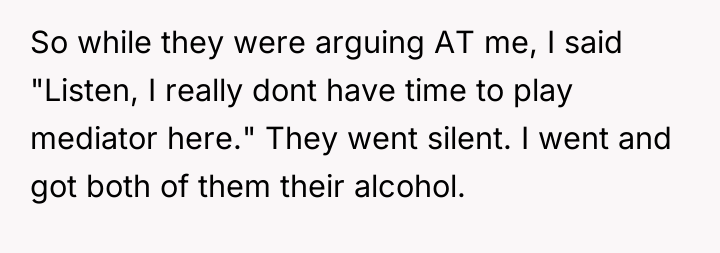


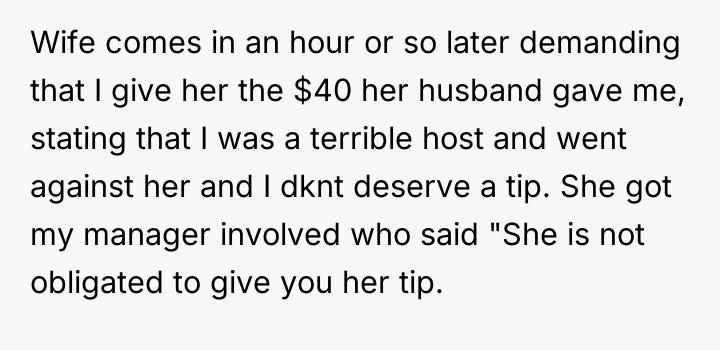

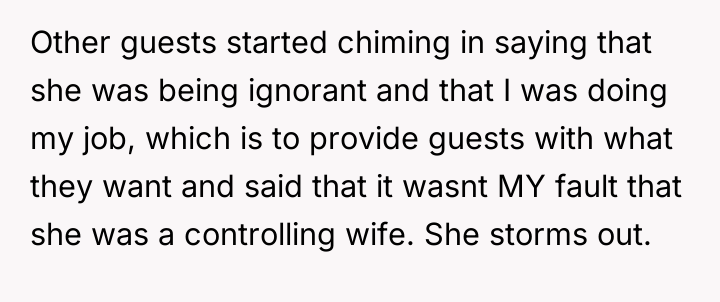

Subscribe to Our Newsletter
As renowned researcher Dr. Brené Brown explains, “Boundaries are the distance at which I can love you and me simultaneously.” This situation perfectly illustrates the breakdown of appropriate boundaries, not only between the dining guests but also within the service dynamic itself. The wife attempted to set an external boundary regarding her husband's consumption, directly involving the server in their marital conflict. The server, feeling trapped by the industry's precarious tipping structure, reacted by trying to appease both sides, which ultimately satisfied neither. The server’s statement, “I really dont have time to play mediator here,” correctly identified the core issue: they were unwillingly pulled into the couple's established conflict pattern. While the server handled the immediate transaction by providing the drinks, the subsequent demand for the tip reveals the wife's attempt to exert control and punish the server for validating her husband's request over her own directive. From an ethical service perspective, once a guest is legally allowed to order an item, the server’s obligation shifts to fulfilling that order, provided they are not violating law or establishment policy. The husband's large tip was a validation of this service, which the wife attempted to revoke using emotional leverage. The server’s actions regarding the serving of alcohol were appropriate under the typical legal and service expectations of a waitress, even though it escalated the domestic tension. To handle this better next time, the server should clearly state to both parties, calmly, "I am happy to serve you both, but I cannot involve myself in your discussion about what he should or should not drink. I will take both of your orders now." By refusing to mediate but still providing service, the server maintains professional distance while fulfilling their role.
HERE’S HOW REDDIT BLEW UP AFTER HEARING THIS – PEOPLE COULDN’T BELIEVE IT.:
The internet jumped in fast, delivering everything from kind advice to cold truth. It’s a mix of empathy, outrage, and no-nonsense takes.

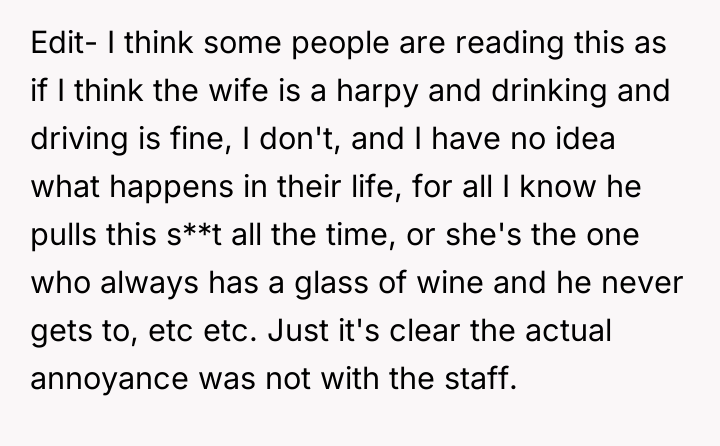



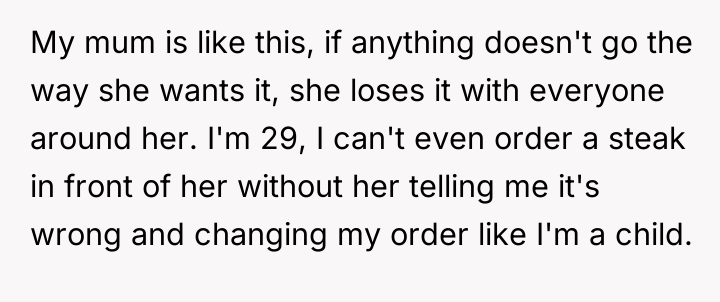

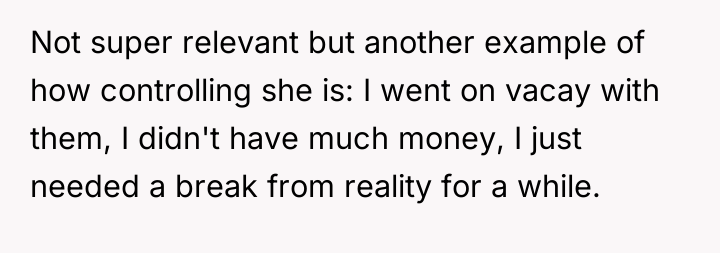








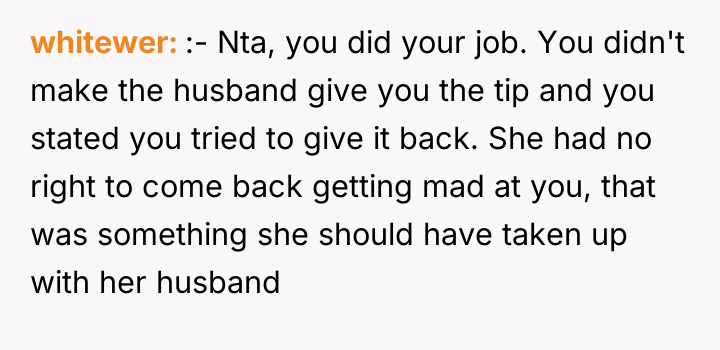



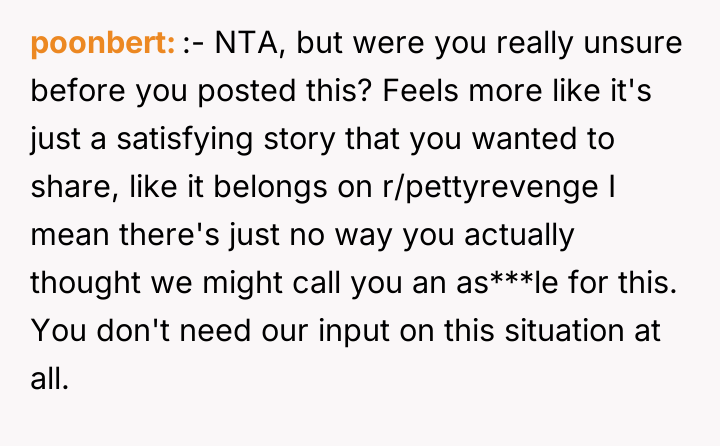
The original poster experienced significant stress due to a volatile disagreement between a married couple regarding alcohol consumption at their table, placing the server in an impossible service dilemma. Despite navigating the situation by serving both parties, which resulted in a substantial tip from the husband, the situation escalated when the wife returned later to demand the tip back, asserting the server acted inappropriately by fulfilling the husband's order.
Should a server prioritize maintaining peace and avoiding a poor tip from one party, or is their primary duty to fulfill the order requests of the individual guest who is of legal age, even when it causes conflict between the dining companions?